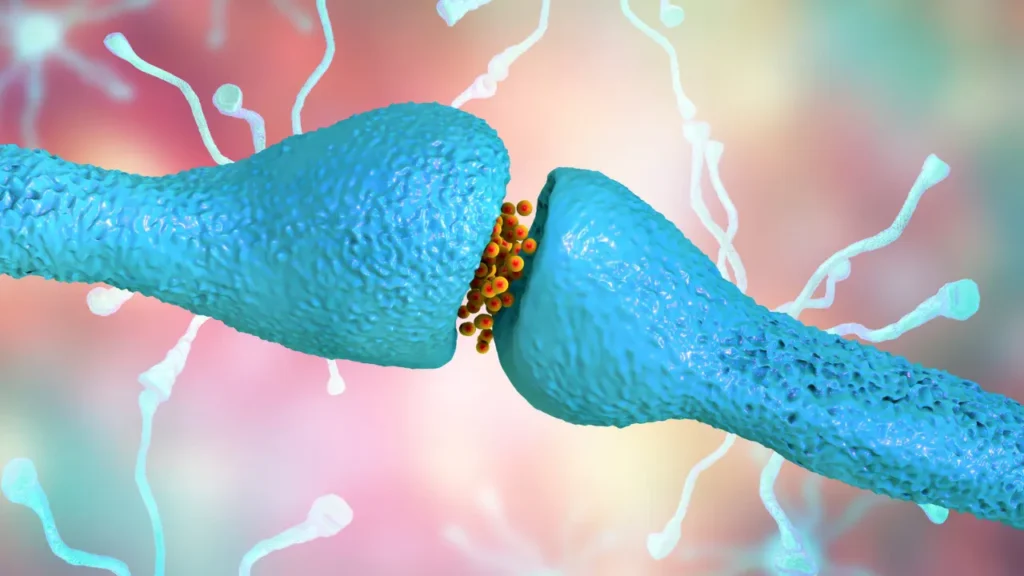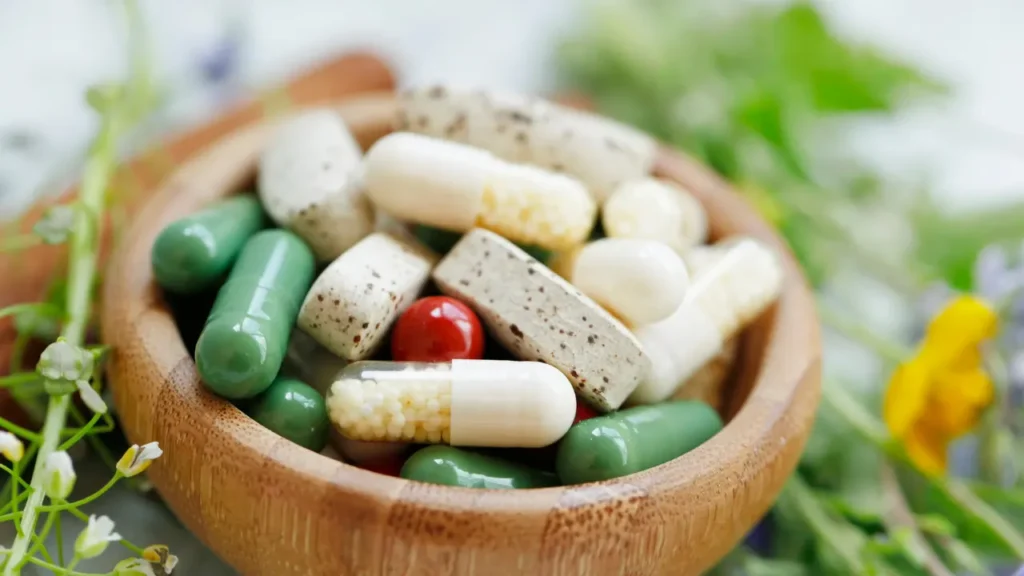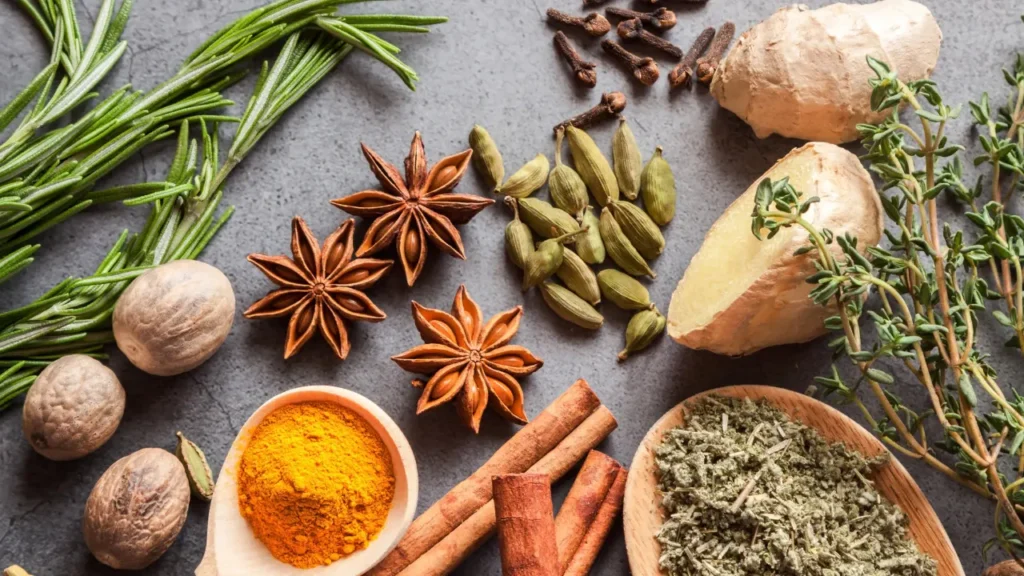The perennial herb known as winter savory (Satureja montana) is a member of the Lamiaceae family, which also includes well-known varieties of basil, rosemary, and thyme. Winter savory, a Mediterranean native, has long been used both as a culinary herb and for its alleged therapeutic benefits. Winter savory is a rich source of biologically active chemicals, which contribute to its many health benefits, according to recent scientific studies. In-depth knowledge about winter savory’s chemical makeup, health advantages, recommended dosage, potential negative effects, drug interactions, and responsible use are all goals of this page.
You May Also Like:
Cardamom: Benefits, Dosage, Side Effects, Drug Interactions, and Other Important Information
Butcher’s Broom: Benefits, Dosage, Side Effects, Drug Interactions, and Other Important Information
Winter Savory: Benefits, Dosage, Side Effects, Drug Interactions, And Other Important Information is an original (NootropicsPlanet) article.
Nature of Winter Savory
The perennial plant known as winter savory (Satureja montana) is distinguished by its woody stems, short, opposite leaves, and white to pale pink blooms. The plant can withstand a variety of environmental conditions, including rocky terrain and well-drained soils, and normally grows to a height of 20 to 50 cm. The plant has been grown for ages for both culinary and medicinal purposes. It is indigenous to the Mediterranean region. It is a well-liked addition to a variety of foods, including meats, stews, and sauces, due to its distinctive flavor, which is frequently described as a blend of thyme and mint.
Health Benefits of Winter Savory
Winter savory contains phenolic chemicals and terpenoids, which are recognized for their antioxidant properties. These substances counteract free radicals, unstable chemicals that can harm DNA, proteins, and cells through oxidative stress. Winter savory can assist the body fend off oxidative stress-related illnesses like cancer, cardiovascular disease, and neurological conditions by scavenging free radicals.
Winter savory has long been valued for its capability to fight against microbes. Strong antibacterial, antifungal, and antiviral properties have been found in the terpenoids, particularly in carvacrol and thymol. These substances have been proven to be effective against a number of infections, including Candida albicans, Escherichia coli, and Staphylococcus aureus. Due to its antibacterial qualities, winter savory has the potential to replace traditional antibiotics in food preservation.
Although inflammation is a natural reaction to infection or tissue damage, it may also be a chronic condition that contributes to a number of illnesses, including cancer, heart disease and diabetes. The phenolic and terpenoids in winter savory have been found to have anti-inflammatory effects. These bioactive substances impede the activation of pro-inflammatory signaling pathways like the nuclear factor-kappa B (NF-B) pathway as well as the action of inflammatory mediators like cytokines.
Due to the antioxidant and anti-inflammatory qualities of winter savory, it has been hypothesized that it may have potential neuroprotective effects. It has been demonstrated that the herb’s phenolic components and terpenoids lower oxidative stress and inflammation in brain cells, shielding them from harm. Additionally, it has been noted that these substances prevent the amyloid-beta peptides, which are thought to play a role in the pathogenesis of Alzheimer’s disease, from aggregating.
Winter savory might have anticancer effects as well, according to certain studies. Its bioactive substances, including carvacrol and rosmarinic acid, have shown in vitro and in vivo evidence of their capacity to inhibit cancer cell proliferation, induce apoptosis, and limit tumor growth. To clarify the molecular mechanisms behind these effects and to determine their therapeutic importance, more study is necessary.

Chemical Composition of Winter Savory
The myriad bioactive ingredients in winter savory, which are broken down into different categories including phenolic compounds, terpenoids, and volatile oils, are what give it its many health advantages.
Phenolic chemicals are secondary metabolites that are present in plants and have anti-inflammatory, antibacterial, and antioxidant effects. The three main phenolic components in winter savory are luteolin, rosmarinic acid, and salvianolic acid. Due to their capacity to control oxidative stress and inflammation in the body, these substances have been linked to a number of health advantages.
A class of chemical substances called terpenoids, which are abundant in winter savory, are responsible for the herb’s flavor and scent. Winter savory contains carvacrol, thymol, and -terpinene as its main terpenoids. These substances’ antibacterial, antioxidant, and anti-inflammatory activities have been the subject of substantial research.
Carvacrol and thymol are the two main volatile chemicals in the complex essential oil of winter savory. Linalool, myrcene, and p-cymene are additional minor ingredients. According to reports, the essential oil possesses antibacterial, antioxidant, and anti-inflammatory qualities.
Physiological Mechanism of Action
The health advantages of winter savory are linked to its bioactive components, which exert their effects via numerous physiological pathways. Among these mechanisms are:
1. Reduced oxidative stress: The antioxidant qualities of winter savory’s phenolic components and terpenoids aid in the neutralization of free radicals and the reduction of oxidative stress in the body. These chemicals protect cellular structures and maintain cellular homeostasis by scavenging reactive oxygen species (ROS) and preventing lipid peroxidation.
2. Microbial growth inhibition: The antibacterial activity of winter savory is mostly related to its terpenoids, such as carvacrol and thymol. These substances damage the cell membranes of bacteria, fungi, and viruses, causing cellular contents to leak and, eventually, cell death. Furthermore, they may inhibit the synthesis of essential cellular components like proteins and nucleic acids, impairing microbial growth and reproduction even further.
3. Inflammation modulation: The anti-inflammatory activities of winter savory are mostly owing to its phenolic components and terpenoids. These chemicals suppress the generation of inflammatory mediators such as cytokines and prostaglandins by inhibiting the activation of pro-inflammatory signaling pathways such as the nuclear factor-kappa B (NF-B) pathway. As a result, they aid in the regulation of the inflammatory response and the prevention of excessive inflammation, which can result in tissue damage and chronic disease.
4. Neuroprotection: The antioxidant and anti-inflammatory properties of winter savory contribute to its neuroprotective effects. Its bioactive components, including as rosmarinic acid and carvacrol, protect brain cells from the effects of oxidative stress and inflammation. Furthermore, they may inhibit the aggregation of amyloid-beta peptides, which is a hallmark of Alzheimer’s disease, potentially preventing the development of neurodegenerative disorders.
5. Anticancer properties: Winter savory’s anticancer activities are mediated by bioactive chemicals, which can cause apoptosis, decrease cell proliferation, and suppress tumor growth. These effects are caused by the activation of pro-apoptotic pathways like the intrinsic mitochondrial pathway and the suppression of cell survival signaling pathways like the PI3K/Akt/mTOR pathway.

Optimal Dosage of Winter Savory
The ideal dose of winter savory is determined by a number of factors, including the user’s age, health status, and intended use of the supplement. The average dosage varies from 300 to 600 mg per day as a dietary supplement, taken as a dry herb, extract, or essential oil. Before using winter savory, seek the advice of a healthcare practitioner, especially if you are pregnant, breastfeeding, or taking medications.
Side Effects of Winter Savory
When used in moderation as a culinary herb or dietary supplement, winter savory is usually regarded as safe. Excessive ingestion, on the other hand, may result in gastrointestinal discomfort such as nausea, vomiting, and diarrhea. Individuals allergic to plants in the Lamiaceae family may experience hypersensitivity reactions such as skin rash, itching, or difficulty breathing in rare cases.
Potential Substance Interactions with Winter Savory
Winter savory may interact with certain pharmaceuticals and herbal supplements, potentially causing unpleasant effects or reducing treatment efficacy. Among the probable interactions are:
1. Anticoagulant and antiplatelet drugs: When used with anticoagulant or antiplatelet medications such as warfarin, aspirin, or clopidogrel, the antioxidant qualities of winter savory may raise the risk of bleeding. If you are using any of these medications, talk to your doctor before using winter savory.
2. Hypoglycemic drugs: Winter savory has been shown to have potential hypoglycemic effects, which may increase the action of blood sugar-lowering medications like insulin or metformin. If you are on hypoglycemic drugs, regularly monitor your blood sugar levels and consult a healthcare expert before using winter savory.
3. Hypotensive drugs: Winter savory may have hypotensive effects, which may boost the action of blood pressure medications such as angiotensin-converting enzyme (ACE) inhibitors or calcium channel blockers. If you are using any of these medications, talk to your doctor before using winter savory.

Best Responsible Uses of Winter Savory
Winter savory can be eaten as a culinary herb, taken as a dietary supplement, or applied topically as an essential oil. To avoid potential side effects or prescription interactions, consume winter savory in moderation.
Consult a healthcare practitioner before consuming winter savory as a dietary supplement or for therapeutic purposes, especially if you are pregnant, breastfeeding, or taking medications.
To assure product quality and safety, get winter savory supplements or essential oils from trustworthy vendors.
Winter Savory:
Conclusion
Winter savory can be a delicious addition to your meals that can boost your brain health while lowering inflammation. This is a great herbal supplement for those who are looking for a natural way to reduce oxidative stress that can lead to cancer. However, winter savory shouldn’t be used as a replacement for cancer therapy. It is important to know that supplements like winter savory can boost your health alongside healthy daily habits, but they are not cure-alls and should not be treated as such.

References:
- Winter savory (Satureja montana) – Overview of its composition, health benefits, and potential uses. Retrieved from: https://www.ncbi.nlm.nih.gov/pmc/articles/PMC6893551/
- The health-promoting properties of winter savory (Satureja montana) essential oil: A review. Retrieved from: https://www.frontiersin.org/articles/10.3389/fphar.2020.01047/full
- Chemical composition and antimicrobial activity of Satureja montana L. essential oil. Retrieved from: https://pubs.acs.org/doi/10.1021/jf00052a045
Important Note: The information contained in this article is for general informational purposes only, and should not be construed as health or medical advice, nor is it intended to diagnose, prevent, treat, or cure any disease or health condition. Before embarking on any diet, fitness regimen, or program of nutritional supplementation, it is advisable to consult your healthcare professional in order to determine its safety and probable efficacy in terms of your individual state of health.
Regarding Nutritional Supplements Or Other Non-Prescription Health Products: If any nutritional supplements or other non-prescription health products are mentioned in the foregoing article, any claims or statements made about them have not been evaluated by the U.S. Food and Drug Administration, and such nutritional supplements or other health products are not intended to diagnose, treat, cure, or prevent any disease.


